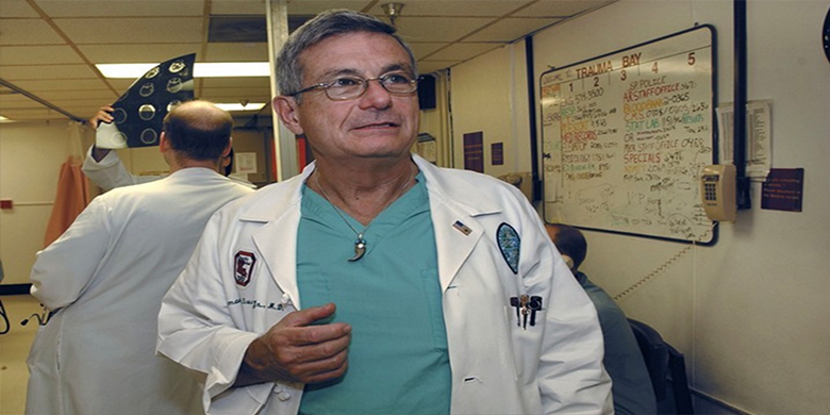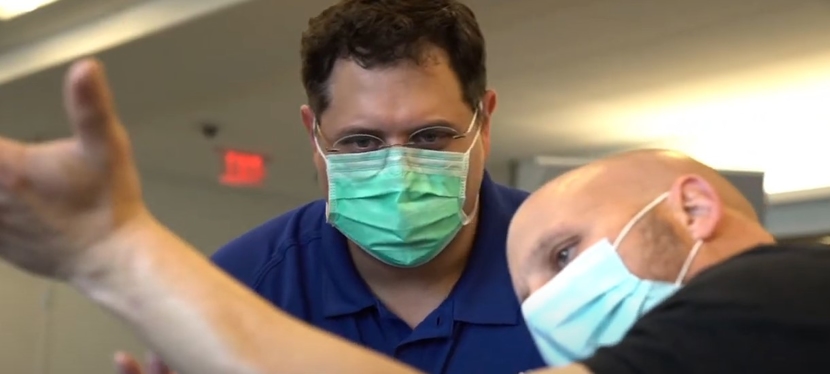Hey, guys, keep an eye out for these men’s health issues
- Category: Health & Wellness, Men's Health
- Posted On:

These days, technology is quick to alert us to problems on the road or remind us about regular maintenance. Since your body doesn’t have dashboard alerts like your car, though, it’s important to keep an eye out for common men’s health issues.
June is designated as Men’s Health Month to raise awareness about the health conditions that affect men. Consider it your dashboard alert: It’s time to schedule a checkup!
Regular checkups with a primary care provider (PCP) can help you keep track of your overall health, identify health problems you’re at a higher risk of developing and have age-appropriate screenings for conditions such as prostate cancer and heart disease.
In between checkups, it’s important to keep an eye on your health, looking for symptoms of common men’s health issues. Keep reading as our University Medical Center New Orleans experts share some facts about men’s health.
Don’t put blinders on when it comes to your health
It probably wouldn’t surprise you to learn that most men don’t like going to the doctor. In fact, a 2022 survey found that 33% of men don’t think they need annual health screenings. It’s time to flip the switch on that trend!
It’s a common misconception that medical providers are there only for when you’re feeling under the weather or have noticed signs that something may be wrong. Your PCP and other medical providers would rather help you prevent a health issue from happening in the first place!
Seeing your PCP on an annual (or more frequent) basis can help you identify the risk factors you have for developing certain medical conditions and determine steps to lower that risk.
Keep your eyes open for these common men’s health issues
Getting older is tied to a higher risk of many types of health issues, so it’s important to be vigilant about safeguarding your health.
Check in with your medical provider if you experience anything that seems out of the ordinary. Common men’s health issues include:
Heart disease. This one shouldn’t be surprising! Heart disease is the leading cause of death among both American men and women. Know your risk factors, such as high blood pressure, high cholesterol, diabetes and a family history of the condition.
Cancer. Cancer is the second leading cause of death for men in the United States, with prostate cancer, lung cancer, colorectal cancer and skin cancer being among the most common types. It’s important to know your family history and risk factors.
Respiratory diseases. Many serious respiratory diseases, including COPD and lung cancer, can start with something as simple as a lingering cough.
Mental health issues. Men can be reluctant to speak up about their mental health. If you’re feeling out of sorts, worried or overly sad, talk with your medical provider.
Sexual health issues. In that survey we mentioned earlier, more than one-third of men reported being concerned about their sexual health, which is tied with urologic health. This includes concerns about dealing with erectile dysfunction, which can occur due to a drop in testosterone levels.
Liver disease. You might not think about your liver much, but when it isn’t working right, it can cause all sorts of health issues. Talk with your PCP if you notice yellowing of the skin or eyes, changes in urination or abdominal swelling.
What you can do to stay healthy as you age
Want to lower your risk of developing the conditions we outlined above? It starts with a healthy lifestyle! You can lower or eliminate many health risks by simply taking better care of yourself.
In addition to seeing your PCP for regular checkups, you should also practice other healthy lifestyle habits, including getting regular exercise, eating a balanced diet, getting enough quality sleep, drinking alcohol only in moderation and not smoking.
In the long run, that “preventive maintenance” will pay off.
Looking to become a healthier version of yourself? Start with regular checkups! Schedule a primary care appointment today.


